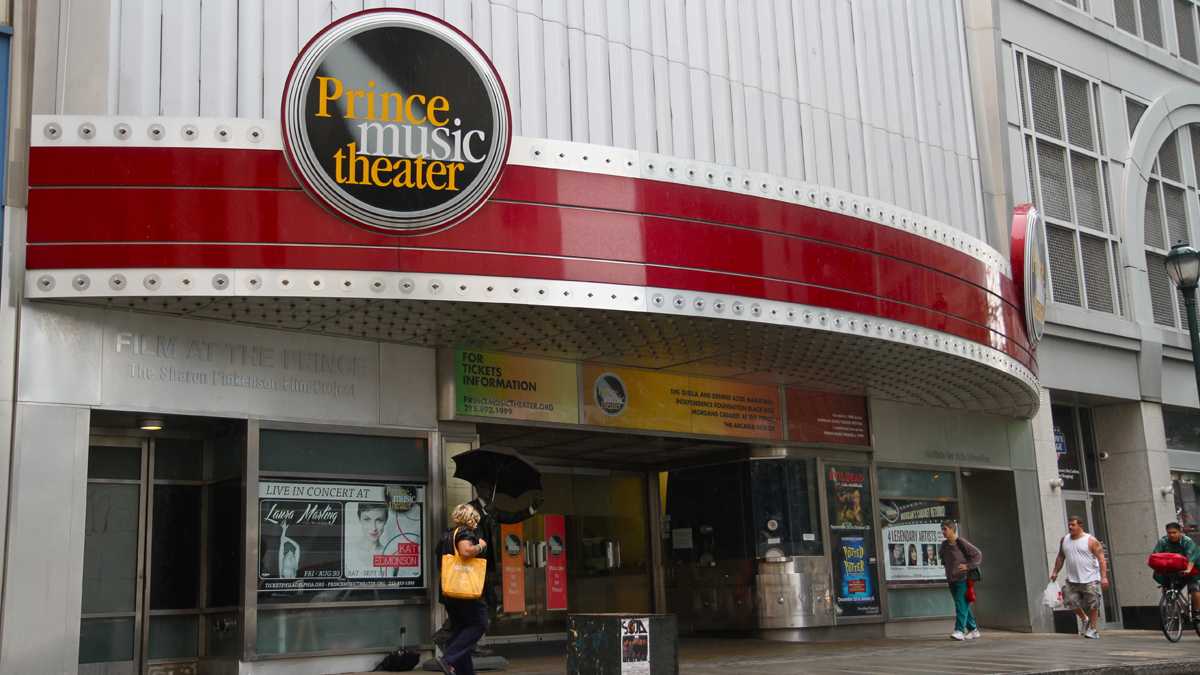The Prince Music Theater’s template became the norm

The Prince Theater in Philadelphia will close. (NewsWorks File Photo)
The news that the Prince Music Theater, on Chestnut Street in the shadow of City Hall, will be shutting its doors and that its producing arm, the American Music Theater Festival, will cease operations, is hardly shocking – it’s been on the chopping block for years. What’s sad about it is, we lose a piece of theater history.
Truth to tell, the Prince has not been a player in the city’s busy theater scene for some time. The last production it produced on its own – and a fine one – was the live radio play of “It’s a Wonderful Life.” That was six years ago.
A lot of theater has come and gone since then – and some of it has been the sort of new musicals the Prince was founded to help create and to produce. In fact, since its founding in 1999, the template that made the Prince work as a developer of musicals has more or less been expanded to become the norm in the American theater: The work is developed and tested by regional theater companies, sometimes with seed money from big-time producers, and then steered onto other stages in bigger places.
An example of that opens Thursday night in the kick-off of its national tour at the Academy of Music. It’s the hot-paced “Newsies,” which closed earlier this year on Broadway after a successful run and was developed by Disney. The show premiered where it was developed, at Paper Mill Playhouse in Millburn, N.J.
When the Prince, named for Broadway producer Harold Prince, opened and the American Music Theater Festival started nurturing new musicals on its stage (and sent some on to New York), there were not that many other stages where a “Newsies”-type musical could be born and not that many theater companies willing to bear them. They’re expensive. They have more X-factors to deal with (and to go wrong) than a play. They’re far more time-consuming than farce, or comedy or any other type of live theater. The Prince’s co-founder and longtime leader, Marjorie Samoff, had a taste for them – and for cabaret, too, which was a rich part of the Prince’s existence – and a passion.
But she didn’t have financial backing and, try as she did the past few years, the Prince went to bankruptcy in 2010 after a withdrawn, acrimonious period with the holder of its mortgage, which through merger had become TD Bank.
Several organizations have done well renting the Prince’s theater – which, depending on the layout of a show, is anywhere from 446 to 460 seats. They range from Curtis Institute to the Philadelphia Film Society to the Philadelphia Gay Men’s Chorus, all groups whose needs were filled by that size auditorium, and without union stagehands and ushers. Other small theater groups have rented the upstairs-floor playing space to their advantages, and the Prince was even able to re-establish some cabaret shows there in the past years.
But in May, when board chairman and funder Herb Lotman died, the theater lost its new captain. Lotman had rescued the building from bankruptcy. The Lotman family was seeking someone to take over the operation of the theater by around Nov. 30, when the current rentals have been honored. No one did. And so the city will lose a theater. But its original mission lives on with other theater companies here in town and across the country, wherever the seeds of new musicals are being planted, watered and given light.
WHYY is your source for fact-based, in-depth journalism and information. As a nonprofit organization, we rely on financial support from readers like you. Please give today.




